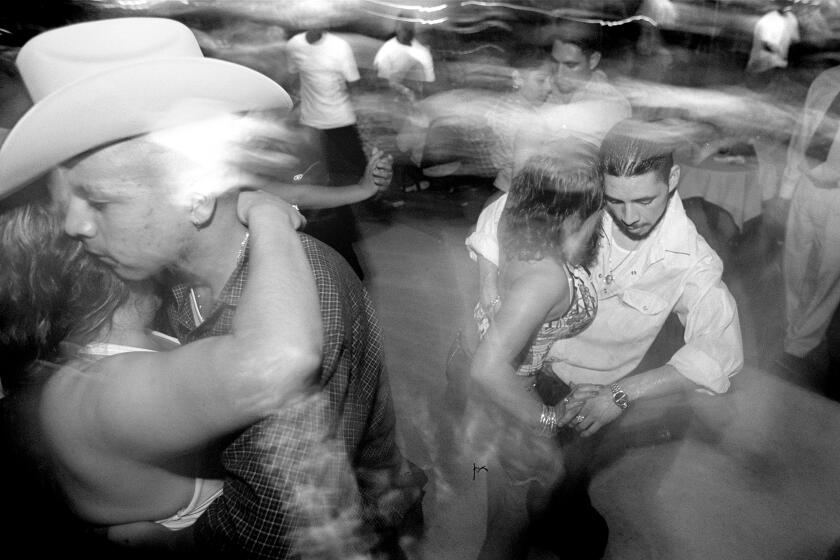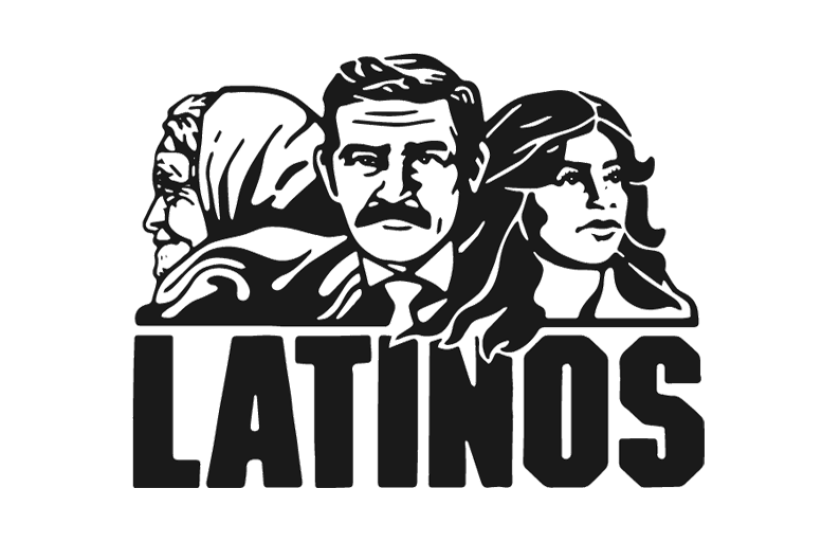Aurelio Jose Barrera, L.A. Times photographer who helped paper win Pulitzer, dies
- Share via
Aurelio Jose Barrera, a longtime L.A. Times photographer who helped the paper win a Pulitzer Prize with a groundbreaking series on Los Angeles’ overlooked Latino communities and in retirement launched a one-man crusade to deliver food to the homeless in those communities, has died.
A self-proclaimed stay-at-home father who doted on his grandkids, Barrera died Tuesday after a fall, said his wife, Lorena Villegas. He was 60.
Barrera was a young intern at The Times in 1983 when a team of Latino journalists banded together and brainstormed ideas for covering communities of color that they believed the paper wrote about only when there was crime, unrest or immigration raids.
Take a look at images by the late Times photojournalist Aurelio Jose Barrera, a Pulitzer Prize winner.
What emerged was a gripping series of stories and powerful black-and-white images of the struggles and successes of those living in East L.A. and other largely Latino communities. The 1983 series examined art, politics, family, religion, culture, education and the constant drumbeat of racism.
The hard work was often taken on long after work hours over pizza and beer in the paper’s satellite office in Downey, where they tossed out ideas and worried their editors would never get behind such a project. The group was large enough that the journalists were able to field their own softball team, the Chicano Cubs.
“We complained that Publisher Otis Chandler, in a 1978 TV interview, had basically written off Mexican Americans and Blacks as Times readers when he said: It’s not their kind of newspaper. It’s too big, it’s too stuffy. If you will, it’s too complicated, ‘“ former Times editor Frank O. Sotomayor later wrote about the motives for the project.
In the summer of 1983, The Times published a series on Southern California’s Latino community.
The team of journalists was left dejected when the paper’s then-editor, Bill Thomas, twice rejected their request that the series be entered in the Pulitzer contest, saying it wasn’t worthy of such a nomination.
The Latino journalists prevailed, and the series won the 1984 Pulitzer for public service, generally considered the most prestigious of the awards.
For Barrera, the 22-part series altered his career trajectory. His internship blossomed into a full-time staff photographer job. He worked in the Orange County bureau for 13 years and became the morning assignment bureau in Los Angeles, a job that required him to get up in the predawn hours and take stock of Southern California, dispatching photographers to hot spots across the region. He left the paper in 2009.
Barrera also worked on the Edward James Olmos book “Americanos: Latino Life in America.” His black-and-white photos from the book were part of a show at the Smithsonian Institute.
Villegas said her husband was so modest about his career accomplishments that they were five years into their marriage before he even mentioned he’d helped the paper win a Pulitzer. But he remained forever proud of the project.
“He really felt the paper overlooked his community, that it only went to the brown communities to cover crime,” she said. “He felt proud about shining a light on the place where he lived.”
Genaro Molina, a Times photographer who was Barrera’s colleague for years, said there was a quiet dignity about his friend.
“He had a humanistic eye and always photographed the Latino community with love and respect. His black-and-white photo essay on Cesar Chavez Boulevard in East Los Angeles celebrated the everyday characters living along that famous boulevard,” Molina said. “His photography always revealed those quiet moments that so many overlook.”
In retirement, Barrera continued to wake up when it was still dark, but this time to deliver groceries to the homeless men and women huddled in the dark corners of East L.A., Montebello and the City of Commerce — his home turf.
On a bike with a pair of blue crates attached to the frame, he’d glide through the alleys and darkened storefronts passing out oranges, tangerines, peaches and bananas his neighbors allowed him to pick. He’d finish up in a parking lot of a discount store just as the sun was rising.
One cold winter he collected sweaters and handed them out to help the street people stay warm. Villegas said she wasn’t even aware of his sweater drive until she read about it in a local paper.
“That’s just who he was,” she said. “He believed in doing good work in your community, and he never saw a reason to take credit for it.”
He is survived by his wife, four children and three grandchildren.
More to Read
Start your day right
Sign up for Essential California for the L.A. Times biggest news, features and recommendations in your inbox six days a week.
You may occasionally receive promotional content from the Los Angeles Times.








